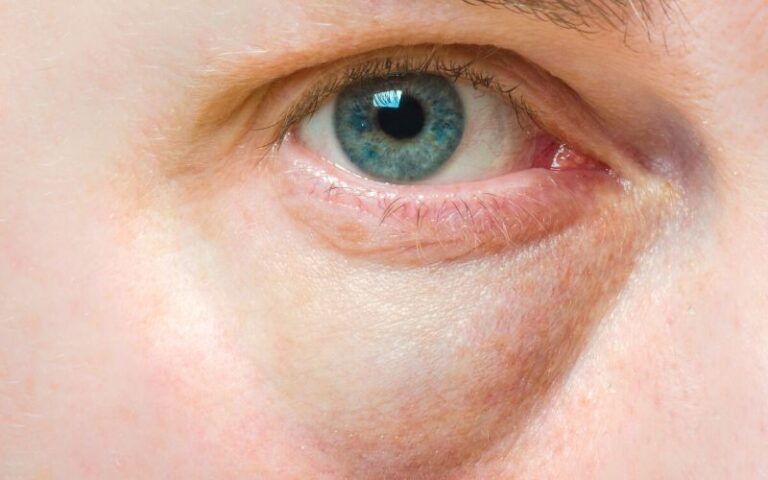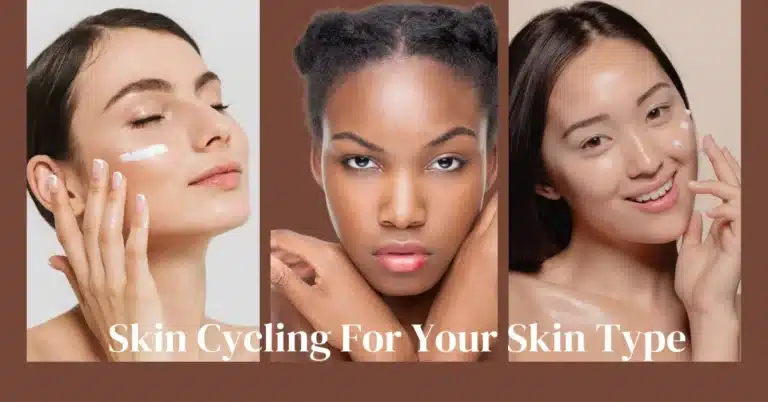Must Avoid Ingredients For Sensitive Skin

Due to its potential for increased reactivity, sensitive skin differs from other skin types. If someone with dry skin uses a product that isn’t meant for them, their skin may get even more dried.
On the other hand, unknown factors could result in flare-ups, red spots, rashes, stinging, or other odd reactions. However, having sensitive skin does not require you to suffer with your skincare regimen. Simply said, you need to know which components to stay away from when choosing a skincare product to test out.
Lemon
Lemon is highly acidic and may cause skin dryness, irritations, and sun damage on sensitive skin. Use it in small quantities if your skin needs it. Also, a patch test is essential before applying lemon essence-infused products to your face. Don’t use it if your skin becomes swollen, red, or itchy during the patch test.
Glycolic Acid
Though glycolic acid, an alpha-hydroxy acid (or AHA), is best for normal, combination and oily skin types, people with dry, highly-sensitive skin may often experience irritability. Any form of glycolic acid can irritate sensitive skin, whether in a topical product, a DIY peeling, or an office-based peel procedure. People with sensitive skin must choose products with a lower percentage of AHAs.
Fragrances
Everything from face masks to serums contains fragrances. These artificial ingredients might irritate sensitive skin even if they make the product smell lovely. Be cautious of anything labeled “unscented” because it may not be fragrance-free. Instead, a fragrance is added to cover up another scent.
Look for fragrance-free products. It’s not always that simple, though. Even “fragrance-free” goods can have extra odors in them.
Before purchasing a product, do additional research to ensure it is fragrance-free. Go online and read reviews, then request a sample so you can conduct a tiny patch test or smell test on yourself. However, the best way to ensure you’re using products suitable for sensitive skin is to ask a skin expert for their advice. Skin experts can decipher those perplexing ingredient lists and only suggest brands they know and trust.
Parabens
Although parabens are one of the most well-known compounds to avoid when using products on sensitive skin, they are nevertheless often utilized. They are known endocrine disruptors, which mean they mimic estrogen in the body, cause hormonal abnormalities and infertility, and are connected to breast cancer.
In general, individuals with sensitive skin should avoid products that contain parabens. Applying paraben-containing emollients on damaged skin may lead to skin irritation and allergic contact dermatitis.
Sulfates
Personal care products, such as shampoos, cleansers, and body washes, often contain sodium lauryl sulfate (SLS) and ammonium lauryl sulfate (ALS). Some people may experience regular skin irritation and have allergic reactions to it.
SLS residue can make the skin drier and lower ceramide levels in the body if it is not thoroughly removed from the body. The best alternatives are Castile soaps and cleansers.
Chemical Sunscreen
Common sunscreen components, including oxybenzone, avobenzone, and octocrylene, don’t harm regular skin but can irritate sensitive skin. Try a mineral or physical formula.
Using mineral sunscreens with zinc oxide or titanium dioxide as active components is significantly safer for sensitive skin.
Alcohol
Alcohol in cosmetic products can penetrate oil buildup and dissolve the dirt and grease on your face. If you have oily skin, alcohol-based toner can help you reduce pore-clogging sebum. However, in the case of dry skin, sensitive skin, or other skin conditions, alcohol-based products will cause the skin to be drier and worsen sensitive skin.
You may use fatty alcohols that are less irritating and sensitizing to the skin than other types of alcohol. When utilizing those, you should still proceed with caution.
Artificial Coloring Agents/Dyes
Colorful formulas could be appealing to some people. However, these colorants or dyes are frequently produced from coal tar, oil, or toxic metals. They may cause skin sensitivity, pore blockage, inflammation, and irritation. Use only colors that are natural or come from fruit.
Not just hair dyes but even clothes dyes can exacerbate skin sensitivity. Most clothes today use a lot of dyes, and you should be cautious about what you put on your skin. Make sure to always wash new clothing before wearing it.
Plant Extracts
A product with a tagline like “natural” or “organic” doesn’t mean it won’t adversely react with your skin. In some cases, some natural products may contain ingredients that may be untested.
For instance, plant-based ingredients like mint can irritate the skin and worsen sensitivity if it’s the primary ingredient in the product. Hence, checking the ingredients and their reactions to sensitive skin is important before adding natural products to your basket.
Harsh Exfoliants
You can use exfoliants on your sensitive skin, but moderation is the key. You have to avoid using products that are too strong. You can try mild chemical exfoliation with amino fruit acids.
Phthalates
Phthalate is another irritant that may negatively impact your sensitive skin. These are generally dissolving agents in personal-care products like shampoos, soaps, hair sprays, detergents, and nail polishes. Exposure to phthalates may end in skin irritations and acne breakouts.
Aluminum
Aluminum traces can be found in antiperspirants, which block your pores to prevent you from sweating. Frequent use of antiperspirants leads to aluminum accumulation in the body over time. The usage can lead to severe health conditions like Alzheimer’s disease and breast cancer in the long run.
Propylene Glycol (PG) & Butylene Glycol
Propylene glycol and butylene glycol are the hidden ingredients in products like cleansers, toothpaste, moisturizers, serums, and shampoos. If you are sensitive to propylene or butylene glycol, your skin will start to itch and get irritated.
Retinoids
Even though retinol is the key component in anti-aging regimens, it is notoriously harsh on the skin. In some cases, retinoids may give rise to irritations and trigger eczema flares. Use retinol in less concentration or avoid it entirely from your sensitive skincare routine to stay away from any adverse effects.
Bakuchiol is a natural substitute for retinol when working with sensitive skin.
Cinnamates
Cinnamates (come from cinnamon) go by methyl cinnamate and can be found in various sunscreens. Even though cinnamon has many skin benefits, cinnamates should be avoided because they might cause irritability and redness. It does not mean you should avoid the spice entirely, but this specific ingredient must be used cautiously.
In addition to sunscreen, cinnamates are also included in lipstick; however, they are unlikely to cause any irritation.
The Takeaway
When it comes to picking the right products to use, being mindful of the habits you develop, and maintaining a regular diet and sleep pattern, you must exert considerable effort if you have sensitive skin. Because it’s a messy process and none of us are perfect, you’re likely to make a few errors here and there.
Gentle and safe ingredients in your skincare products are crucial for keeping your skin healthy and irritation-free. Carefully read the label and find the right product to prevent your sensitive skin from acne and inflammation.
FAQs
Q: How can I test an unfamiliar product on my sensitive skin?
A: Apply it behind your ear for the first few days and check for the results. You can proceed with the product if your sensitive skin does not become irritated.
Q: Which fabrics are suitable for sensitive skin?
A: Soft and natural fabrics like silk and cotton are best for sensitive skin. Ensure that your clothes are loose in fit with a minimum number of creases and folds.
Q: Is it ok to use “ hypoallergenic “ products on sensitive skin?
A: Not all hypoallergenic skin care products are safer for sensitive skin. Because there are no federal standards to govern manufacturers’ use of the term “hypoallergenic.”
References
- Skincare Ingredients That Are Absolute: https://www.femina.in/beauty/skin/5-skincare-ingredients-that-are-absolute-no-nos-if-you-have-sensitive-skin-219444.html
- Ingredients to Avoid If You Have Sensitive Skin: https://www.100percentpure.com/blogs/feed/10-ingredients-to-avoid-if-you-have-sensitive-skin
- Got Sensitive Skin: https://agelessglowskin.com/ingredients-to-avoid-for-sensitive-skin/
- Skincare ingredients to avoid: https://myfacedr.com/blogs/posts/ingredients-avoid-sensitive-skin
- Ingredients to Avoid if You Have Sensitive Skin: https://misumiskincare.com/blogs/news/11-ingredients-to-avoid-if-you-have-sensitive-skin
- Skincare Ingredients to Avoid: https://theodermaskincare.com/blogs/news/skincare-ingredients-to-avoid-if-you-have-sensitive-skin





